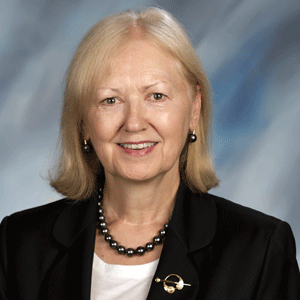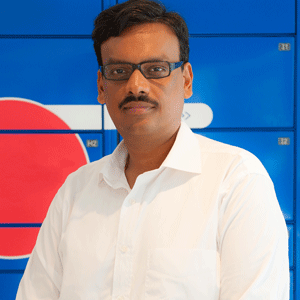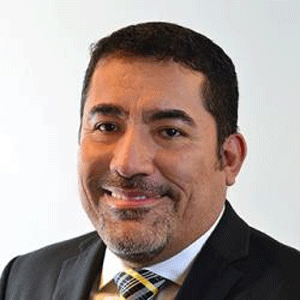THANK YOU FOR SUBSCRIBING

Shaping Customer Experience Through Smarter Logistics
Pascal Kouknas, General Manager of Logistics, Shipping, and Information Technology, Freedom Australia


Pascal Kouknas, General Manager of Logistics, Shipping, and Information Technology, Freedom Australia
Pascal Kouknas, General Manager of Logistics, Shipping, and Information Technology at Freedom Australia, oversees end-to-end operations with a focus on efficiency and innovation. With expertise in supply chain management, digital transformation, and customer service, he drives strategic improvements that streamline processes, enhance performance, and deliver value across the organization’s logistics and IT functions.
Driving Integrated Operations for a Smarter Supply ChainAt Freedom Australia, I lead a tightly connected ecosystem spanning logistics, shipping and information technology. My focus is on making sure these areas operate as one, supporting an efficient and responsive supply chain that meets operational targets while staying flexible to customer needs.
-
Logistics is no longer a behind-the-scenes function. It is now a strategic driver of customer experience, brand trust and business growth
Day to day, that includes everything from managing inbound freight and warehouse operations to overseeing delivery performance and the broader IT environment. We are continuing to bring in more automation and intelligence to improve visibility, speed up decisions and reduce manual effort. The goal is to create a platform that supports both scale and adaptability as the business grows.
One of the most overlooked blind spots is timing. Having accurate data is essential, but if it arrives too late, it limits your ability to act. Data needs to be both reliable and available at the right moment to support confident, forward-looking decisions.
Another frequently encountered challenge is inconsistency among systems and partners. In the retail sector, we collaborate with partners, an extensive supplier network, and operate across multiple platforms. In the absence of unified data standards or governance, obtaining a comprehensive, end-to-end perspective on performance becomes increasingly difficult.
We are also learning to pay closer attention to smaller patterns. Trends in exception handling, driver activity or stock flow often highlight areas where flow can be improved. It is not always about collecting more data. Often, it is about making better use of what is already there.
Market Maturity Influencing Digital Adoption in Logistics
Logistics is no longer a behind-the-scenes function. It is now a strategic driver of customer experience, brand trust and business growth. Technology plays a big part in helping us become more predictive, more efficient and more responsive. It's the combination of people, data and process that truly delivers the impact.
At Freedom, we are focused on evolving our supply chain not just for performance, but for purpose. That means staying adaptable, operating sustainably and building the foundations for long-term, responsible growth.
Market maturity absolutely shapes the adoption curve. In more established markets digital transformation tends to be more structured, often built on complex systems that have evolved over time. While this brings depth it can also slow down change.
In contrast, local markets frequently demonstrate commendable agility. Stakeholders are often more open to implementing innovative solutions, occasionally choosing to bypass legacy systems altogether. However, this approach may present challenges regarding integration and consistency, particularly if these solutions are scaled rapidly without establishing a robust foundation.
Our approach is to keep both agility and long-term vision in view. Building a modular and flexible technology base has helped us trial new capabilities across the business quickly while still preparing for future scale.
Building Sustainability into the Tech StackSustainability is now a core part of how we design and operate our supply chain. At Freedom our distribution centre in Dandenong South which came online in 2023 was built with sustainability at its heart. It features solar power rainwater harvesting and was developed to meet a five-star Green Star rating. It is an investment that reflects both our operational goals and environmental responsibility.
However, it goes beyond the building. We are embedding environmental metrics into the same systems that track cost and performance so that every planning decision from load consolidation to returns handling considers both commercial and environmental impact.
Often the most sustainable option is also the most efficient. Less waste fewer split deliveries and better routing all reduce emissions and costs. With the right tools and visibility in place sustainability becomes part of how we run every day, not something separate to manage.
Future of LogisticsLogistics is no longer just a back-end function. It now plays a central role in how businesses deliver value, respond to change and build trust with customers.
At Freedom, adaptability starts with visibility. Being able to see what is happening across the supply chain in real time, and respond quickly without losing focus, is what keeps us moving forward.
We are building that responsiveness by improving how data flows across our systems, adding more flexibility to our planning, and making sure our teams have the tools and context they need to make decisions with confidence.
It is an ongoing effort, but the goal is clear. To create an operation that moves with the business, supports different ways of working, and stays steady even when things shift around us.












